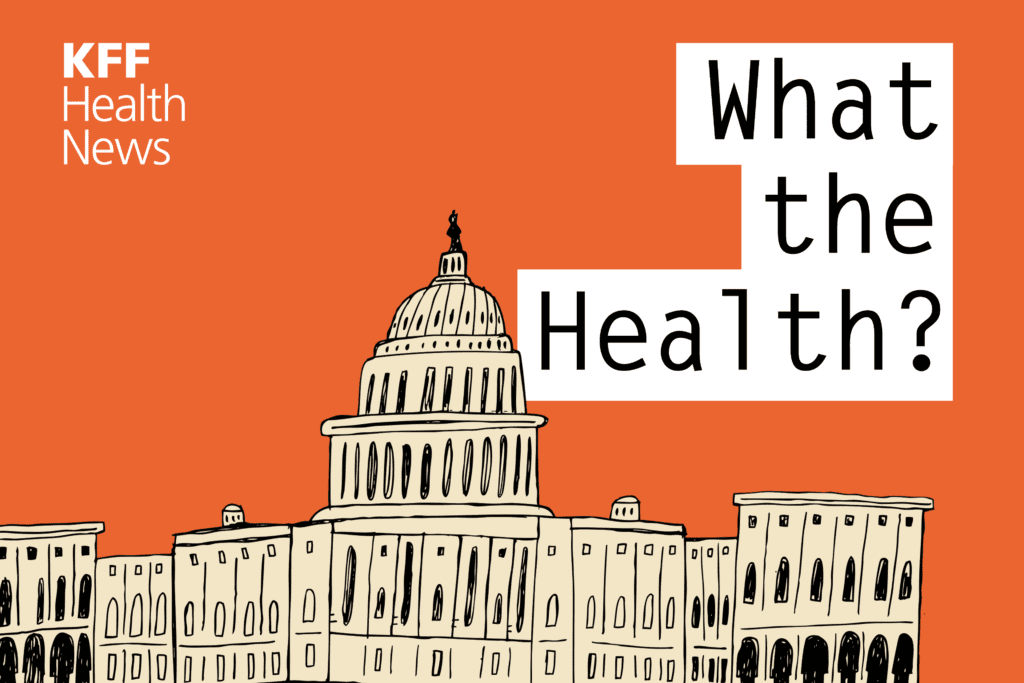KFF Health News' 'What the Health?': For ACA Plans, It’s Time to Shop Around

In most states, open enrollment for plans on the Affordable Care Act exchange — also known as Obamacare — began Nov. 1 and lasts until Dec. 15, though some states go longer. With premiums expected to increase by a median of 6%, consumers who get their health coverage through the federal or state ACA marketplaces are encouraged to shop around. Because of enhanced subsidies and cost-sharing assistance, they might save money by switching plans.
Meanwhile, Ohio is yet again an election-year battleground state. A ballot issue that would provide constitutional protection to reproductive health decisions has become a flashpoint for misinformation and message testing.
This week’s panelists are Mary Agnes Carey of KFF Health News, Jessie Hellmann of CQ Roll Call, Joanne Kenen of the Johns Hopkins Bloomberg School of Public Health and Politico, and Rachana Pradhan of KFF Health News.
Among the takeaways from this week’s episode:
Open enrollment for most plans on the Affordable Care Act exchange — also known as Obamacare — began Nov. 1 and lasts until Dec. 15, though enrollment lasts longer in some states. With premiums expected to increase by a median of 6%, consumers are advised to shop around. Enhanced subsidies are still in place post-pandemic, and enhanced cost-sharing assistance is available to those who qualify. Many people who have lost health coverage may be eligible for subsidies.
In Ohio, voters will consider a ballot issue that would protect abortion rights under the state constitution. This closely watched contest is viewed by anti-abortion advocates as a testing ground for messaging on the issue. Abortion is also key in other races, such as for Pennsylvania’s Supreme Court and Virginia’s state assembly, where the entire legislature is up for election.
Earlier this week, President Joe Biden issued an executive order that calls on federal agencies, including the Department of Health and Human Services, to step into the artificial intelligence arena. AI is a buzzword at every health care conference or panel these days, and the technologies are already in use in health care, with insurers using AI to help make coverage decisions. There is also the recurring question, after many hearings and much discussion: Why hasn’t Congress acted to regulate AI yet?
Our health care system — in particular the doctors, nurses, and other medical personnel — hasn’t recovered from the pandemic. Workers are still burned out, and some have participated in work stoppages to make the point that they can’t take much more. Will this be the next area for organized labor, fresh from successful strikes against automakers, to grow union membership? Take pharmacy workers, for instance, who are beginning to stage walkouts to push for improvements.
And, of course, for the next installment of the new podcast feature, “This Week in Medical Misinformation:” The official government website of the Republican-controlled Ohio Senate is attacking the proposed abortion amendment in what some experts have said is a highly unusual and misleading manner. Headlines on its “On The Record” blog include “Abortion Is Killing the Black Community” and say the ballot measure would cause “unimaginable atrocities.” The Associated Press termed the blog’s language “inflammatory.”
Email Sign-Up
Plus, for “extra credit,” the panelists suggest health policy stories they read this week they think you should read, too:
Mary Agnes Carey: Stat News’ “The Health Care Issue Democrats Can’t Solve: Hospital Reform,” by Rachel Cohrs.
Jessie Hellmann: The Washington Post’s “Drugstore Closures Are Leaving Millions Without Easy Access to a Pharmacy,” by Aaron Gregg and Jaclyn Peiser.
Joanne Kenen: The Washington Post’s “Older Americans Are Dominating Like Never Before, but What Comes Next?” by Marc Fisher.
Rachana Pradhan: The New York Times’ “How a Lucrative Surgery Took Off Online and Disfigured Patients,” by Sarah Kliff and Katie Thomas.
To hear all our podcasts, click here.
And subscribe to KFF Health News’ “What the Health?” on Spotify, Apple Podcasts, Pocket Casts, or wherever you listen to podcasts.
Related Topics
Contact Us
Submit a Story Tip




